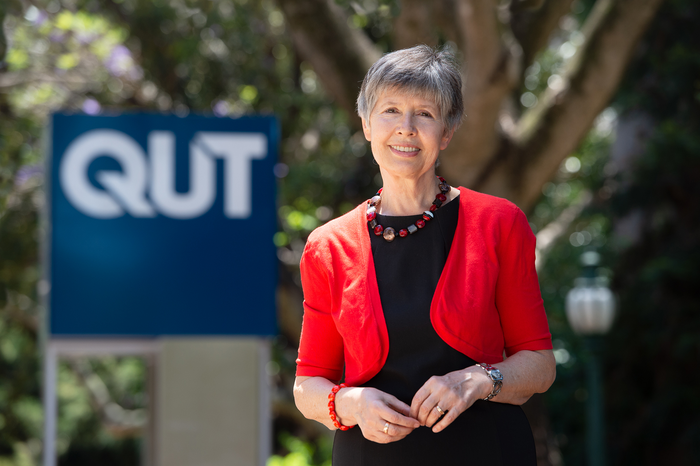The international group of scientists who successfully lobbied the World Health Organisation to recognise the airborne transmission of COVID-19 have published four key steps needed to avoid similar critical mistakes in the future.

Credit: QUT
The international group of scientists who successfully lobbied the World Health Organisation to recognise the airborne transmission of COVID-19 have published four key steps needed to avoid similar critical mistakes in the future.
In a viewpoint article published in the journal Clinical Infectious Diseases, QUT air-quality expert Distinguished Professor Lidia Morawska leads an international group of scientists in detailing the World Health Organisation’s initial dismissal of airborne transmission of COVID-19 in the early stages of the pandemic.
The viewpoint, written by 33 researchers from more than 10 countries, details the struggle of the large group of experts who warned the world about the risk of COVID-19 spreading through the air, at a time when the World Health Organisation declared “COVID-19 is NOT airborne” and “there is no specific evidence to suggest the wearing of masks by the mass population has any potential benefit.
In the early months of the 2020, Professor Morawska led a group of almost 240 international experts in warning authorities on the reality of airborne transmission. It was only in July that WHO accepted the evidence of airborne transmission.
In 2021, Professor Morawska was named in the 2021 TIME100 as one of the 100 most influential people in the world.
In the viewpoint, the scientists outline their struggle to have authorities recognise the science of airborne transmission of the virus.
“Time was of the essence as the pandemic was intensifying and people were dying,” the article says.
“We think this account should be made public to serve as a warning about what happens when scientific evidence is rejected in favour of beliefs that have become dogma without a firm evidence base.
“It is a tragic situation for our society that scientific fact is not timely adopted in public health decision-making.”
The article has four recommendations on how society can do better in future pandemics:
- Multidisciplinary mechanisms should be created by which decision makers should be accountable for using or rejecting science, in a transparent and timely manner.
- Decision makers should use the best available science and not contort the science in order to fit a decision that may hinge on multiple factors.
- Decision makers should acknowledge scientific realities and explain how they, along with numerous other factors, drive policy. Such transparency would build public trust.
- Concentrated effort should be made to use the massive body of data and the evidence amassed during the COVID-19 pandemic to assess the protective impact of control measures against the airborne transmission of the virus, should they have been implemented since the beginning of the pandemic.
Professor Morawska said 36 experts alerted WHO on the importance of airborne transmission of COVID-19 in April 2020 but it was not until the advice was published in an international journal in July 2020 that WHO acknowledged it.
“This delay has consequences extending through the pandemic,” Professor Morawska said.
“Those early three months were critical, because this was when control measures were being developed and introduced in countries around the world.
“This was also the time when public interest was most acute and messages around transmission were embedded into the actions that millions of people took in their daily lives.”
Journal
Clinical Infectious Diseases
DOI
10.1093/cid/ciad068
Method of Research
Commentary/editorial
Subject of Research
Not applicable
Article Title
COVID-19 and Airborne Transmission: Science Rejected, Lives Lost. Can Society Do Better?
Article Publication Date
10-Feb-2023
COI Statement
n/a




